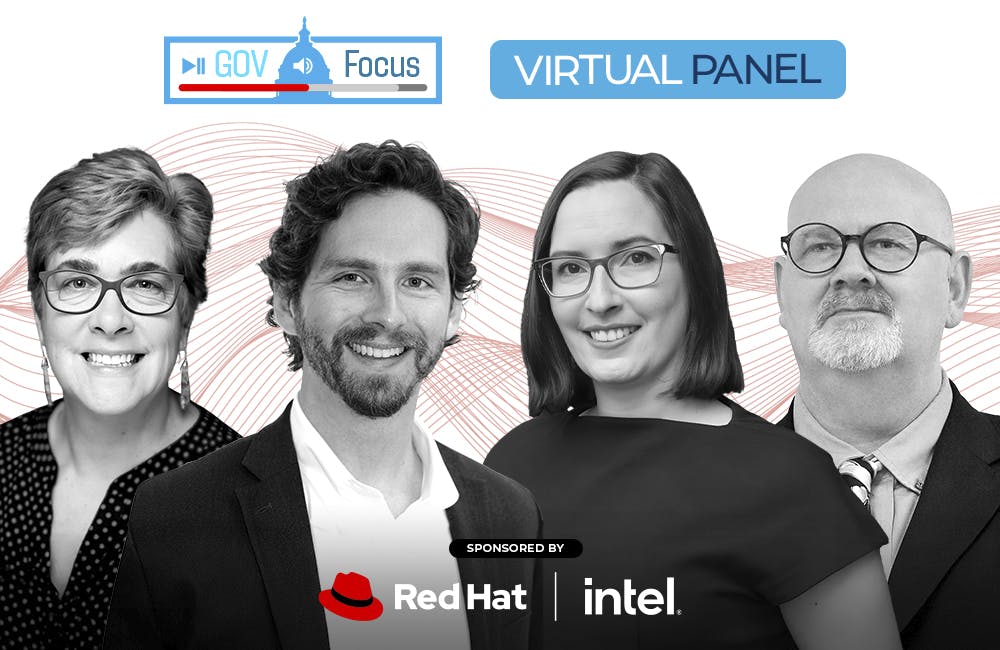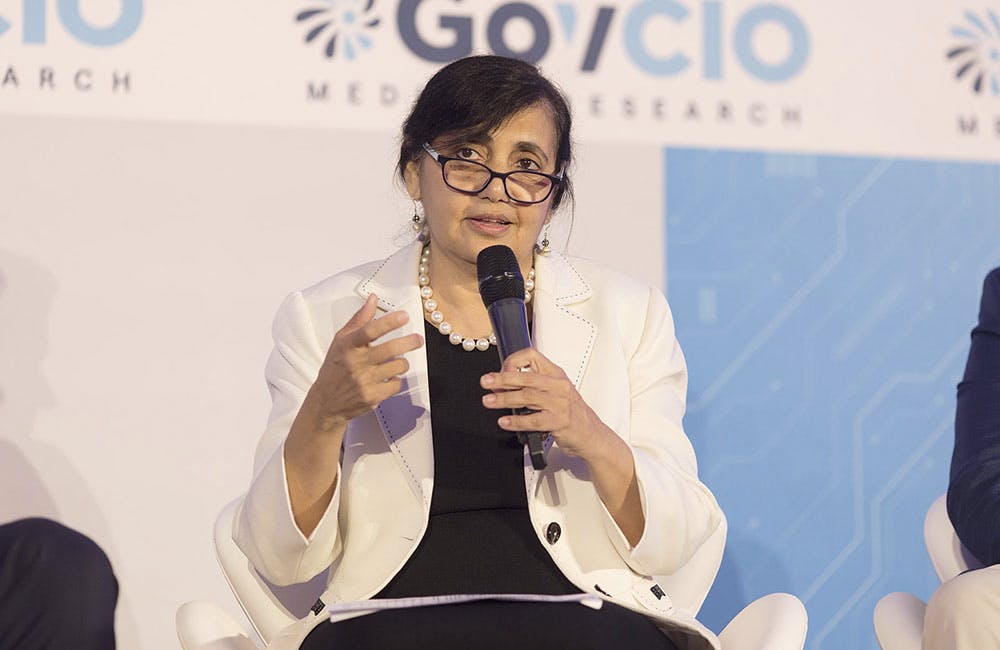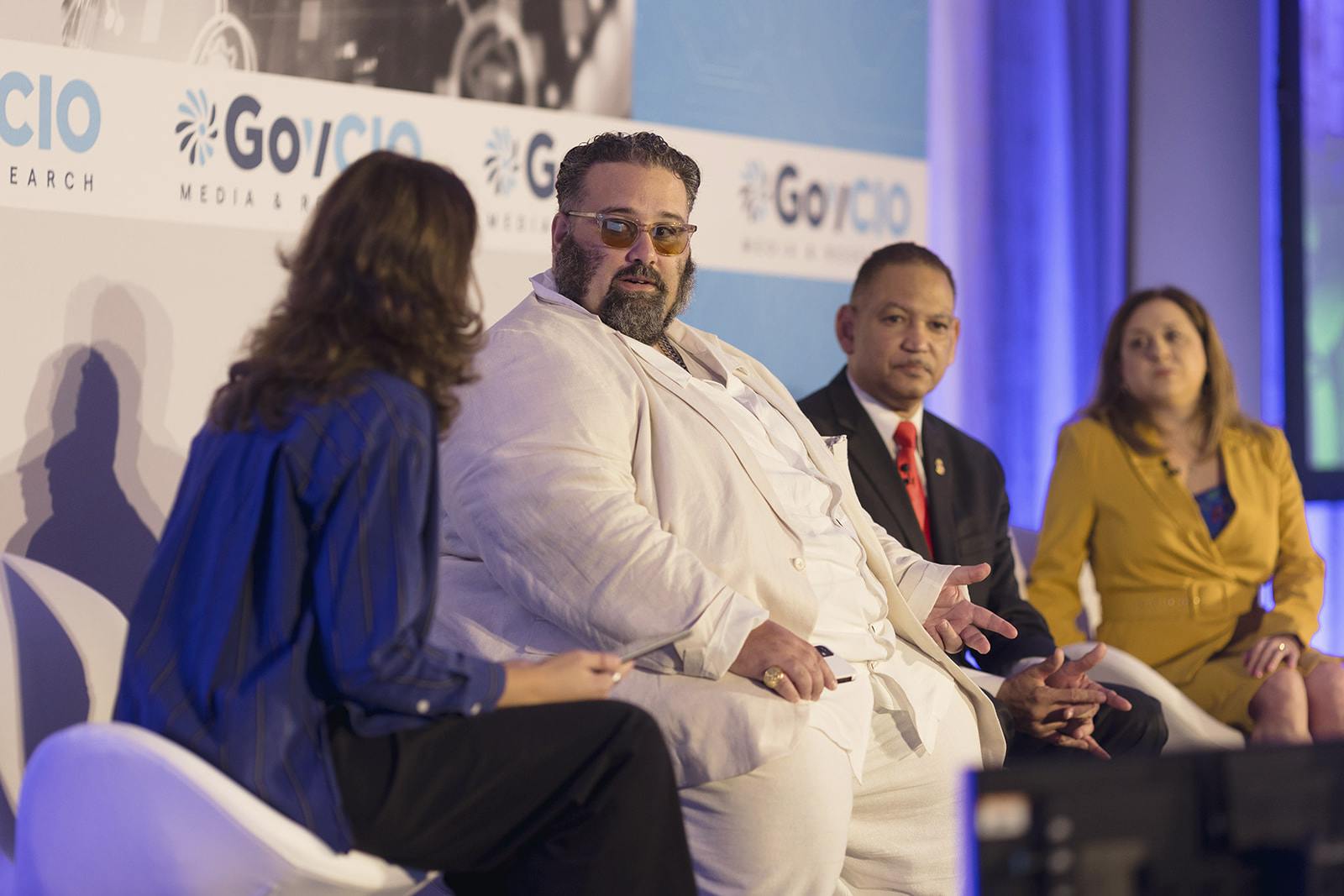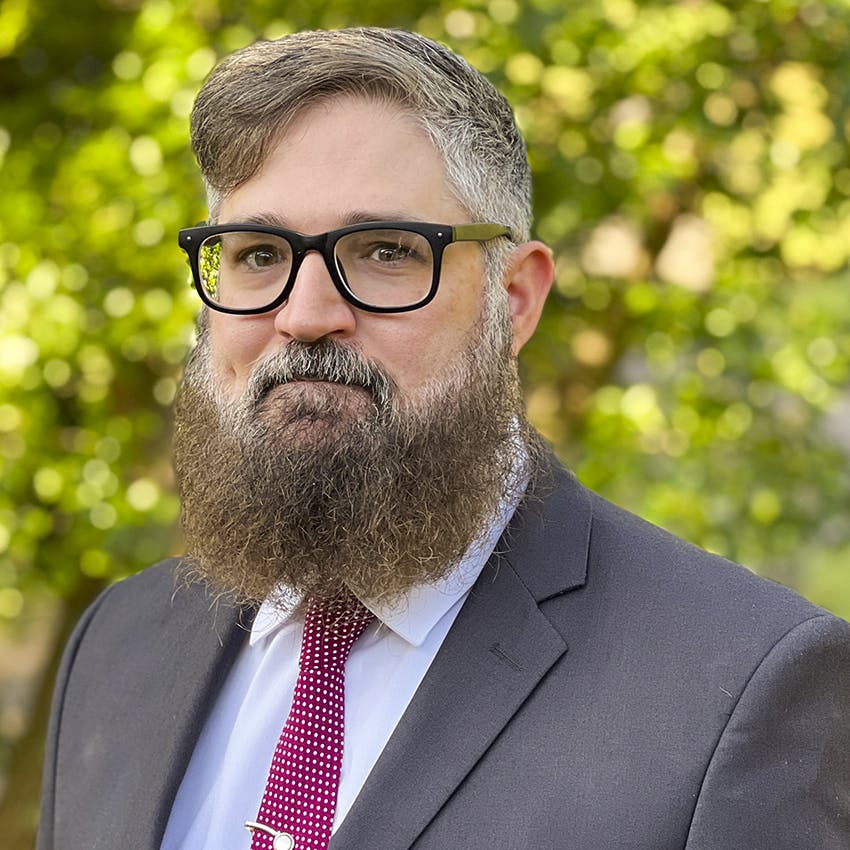ODNI-UVA Partnership Develops Future Intelligence Workforce
The National Security Data and Policy Institute aims to bridge skills gaps and develop the intelligence community’s next-gen workforce.

The Office of the Director of National Intelligence (ODNI) and the University of Virginia (UVA) partnered to establish the National Security Data and Policy Institute (NSDPI), which aims to leverage academic expertise to address the country’s most pressing national security issues. Director of National Intelligence Avril Haines said that the institute will accelerate the United States’ emerging tech advantage at a ribbon cutting in November in Charlottesville.
“As our primary competitors and adversaries continue to make massive investments in technology and people, this institute will help inform how we prepare the [Intelligence Community] workforce to develop the most productive human-machine partnerships,” said Haines on Nov. 22.
The partnership reflects a growing emphasis across the Intelligence Community (IC) on the critical role advanced data analysis and artificial intelligence play in national security. IC Chief Data Officer Lori Wade told GovCIO Media & Research in October that the workforce is a critical component of modernization for the IC.
“We’re all competing for the skilled workforce across the private sector, across the DOD, with the IC and across the globe,” said Wade. “We need to start investing and we need to think of new and different ways in which we can bring them into the workforce,” said Wade.
According to UVA, Wade and her team will work closely with Philip Potter, a professor of politics and public policy and the founding director of the Batten School of Leadership and Public Policy’s National Security Policy Center, who will lead the new institute.
Deputy Director of National Intelligence for Policy and Capabilities Charles Luftig told GovCIO Media & Research in an interview that IC officials are examining the workforce needs and challenges with NSDPI officials.
“We have procedures in place where the IC, CDO and the chief data officer office, will help collect requirements questions from around the intelligence community,” Luftig said. “Then, we’ll work in concert with the Institute in order to figure out the prioritization of those in order to make sure that we don’t sort of oversaturate immediately.”
Academic institutions like UVA give the IC an advantage in creating a better and more well-rounded workforce for the intelligence world, officials said.
“We have been so impressed to learn about UVA’s Launchpad and your efforts to widen the aperture beyond STEM to train more liberal arts majors to be tech-savvy critical thinkers,” Haines said at the ribbon-cutting. “The nation truly needs more of those programs to address our human talent shortage in AI and technology broadly.”
The institute will conduct new data research, develop policy strategy and advance next generation technologies in national security. Luftig said combining the data and policy side is critical to modernizing the intelligence workforce and outpacing emerging threats.
“Policy folks are very good at creating policy. The data folks are very good at focusing on data,” said Luftig. “We need to be able to rapidly find and infuse data and examine it through a more interdisciplinary lens than we ever have before.”
“This center will bring together real expertise in a bunch of different areas that the university has at its disposal and combine that with the IC to really advance national security,” Luftig added.
The institute, Haines said, reinforces the IC’s commitment to harnessing cutting-edge data analysis techniques to decipher and counter evolving threats and to create systems that help human analysts better understand the threat landscape.
“The nation truly needs more of those programs to address our human talent shortage in AI and technology broadly,” said Haines. “It’s imperative that we work across all sectors to inspire and equip the next generation to rise to these challenges.”
The partnership is a new frontier in the IC’s workforce mission, Luftig said. The IC Data Strategy, released last year, calls for more non-traditional partnerships and the NSDPI, he said, can be game-changing.
“This is an example, perhaps a leading example, of non-traditional partnerships. Not state-to-state, but really government to outside of government,” said Luftig. “I think this is going to be transformative.”
This is a carousel with manually rotating slides. Use Next and Previous buttons to navigate or jump to a slide with the slide dots
-

AI Foundations Driving Government Efficiency
Federal agencies are modernizing systems, managing risk and building trust to scale responsible AI and drive government efficiency.
43m watch -

Inside DOD’s Push to Grow the Cyber Workforce Through Academia
Diba Hadi gives her first interview since becoming principal director of the DOD’s Cyber Academic Engagement Office.
15m listen -

Agencies Tackle Infrastructure Challenges to Drive AI Adoption
Federal agencies are rethinking data strategies and IT modernization to drive mission impact and operational efficiency as new presidential directives guide next steps.
5m read Partner Content -

Generative AI Demands Federal Workforce Readiness, Officials Say
NASA and DOI outline new generative AI use cases and stress that successful AI adoption depends on strong change management.
6m read -

The Next AI Wave Requires Stronger Cyber Defenses, Data Management
IT officials warn of new vulnerabilities posed by AI as agencies continue to leverage the tech to boost operational efficiency.
5m read -

Federal CIOs Push for ROI-Focused Modernization to Advance Mission Goals
CIOs focus on return on investment, data governance and application modernization to drive mission outcomes as agencies adopt new tech tools.
4m read -

Fed Efficiency Drive Includes Code-Sharing Law, Metahumans
By reusing existing code instead of rewriting it, agencies could dramatically cut costs under the soon-to-be-enacted SHARE IT Act.
5m read -

Data Transparency Essential to Government Reform, Rep. Sessions Says
Co-Chair of the Congressional DOGE Caucus Rep. Pete Sessions calls for data sharing and partnerships to reduce waste and improve efficiency.
5m read -

DOD Turns to Skills-Based Hiring to Build Next-Gen Cyber Workforce
Mark Gorak discusses DOD’s efforts to build a diverse cyber workforce, including skills-based hiring and partnerships with over 480 schools.
20m listen -

Trump Executive Order Boosts HBCUs Role in Building Federal Tech Workforce
The executive order empowers HBCUs to develop tech talent pipelines and expand access to federal workforce opportunities.
3m read -

Navy Memo Maps Tech Priorities for the Future Fight
Acting CTO’s memo outlines critical investment areas, from AI and quantum to cyber and space, as part of an accelerated modernization push.
5m read -

DOD Can No Longer Assume Superiority in Digital Warfare, Officials Warn
The DOD must make concerted efforts to address cyber vulnerabilities to maintain the tactical edge, military leaders said at HammerCon 2025.
4m read
















